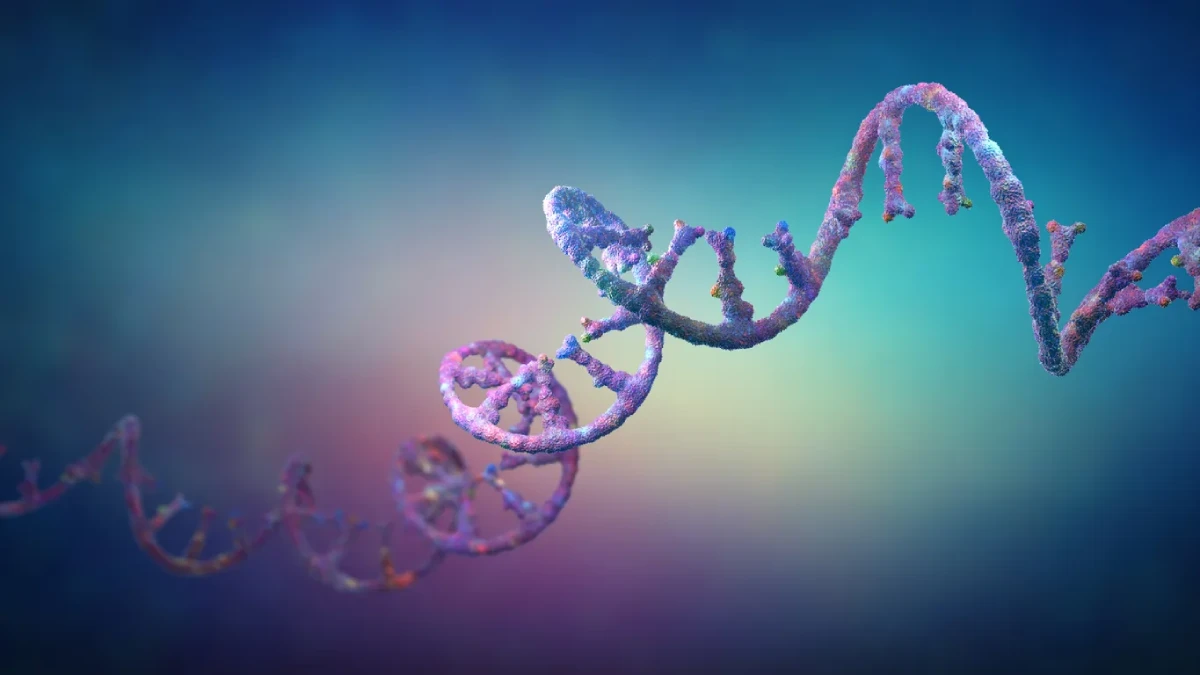Usher Syndrome Type 1F


What is Usher Syndrome Type 1F?
Usher syndrome type 1F is an inherited disease that causes profound hearing loss from birth and impairs vision beginning in adolescence.
Infants with Usher syndrome type 1F are profoundly deaf in both ears at birth. This hearing loss does not typically respond to hearing aids, though it may benefit from cochlear implants. Without early interventions, the child may not develop speech abilities.
In adolescence, people with Usher syndrome type 1F develop retinitis pigmentosa, an eye disease which causes night blindness and a gradual loss of peripheral vision. Eventually only the central vision remains, creating “tunnel vision.” This central vision too can be impaired and can lead to blindness in a small number of people with the disease. In some cases, people with Usher syndrome type 1F develop cataracts, which can further impair vision.
People with Usher syndrome type 1F also have severe balance problems and have trouble sensing changes in speed or direction. They learn to sit and walk independently at a later age than other children. Older children with the disease may appear clumsy due to their balance problems and may have difficulty with athletic activities.
The disease does not affect intelligence nor does it cause any other health problems.
How common is Usher Syndrome Type 1F?
Usher syndrome type 1—this includes subtypes 1A to 1G—affects 1 in 25,000 children. As many as 1 in 70 U.S. adults may be carriers of some form of Usher syndrome. Approximately 11 to 19% of people with Usher syndrome have type 1F.
Among children who are deaf or hard of hearing, 3 to 6% have some form of Usher syndrome—types 1, 2, or 3. Among adults who are both deaf and blind, 50% have Usher syndrome.
Type 1F is more commonly found in Ashkenazi Jews. Between 0.7 and 2.5 in 100 Ashkenazi Jews are carriers of a particular mutation that causes this disease, rating it one of the more commonly carried diseases among this population.
How is Usher Syndrome Type 1F treated?
There is no cure for Usher syndrome type 1F, however early treatment is important to give an affected child the best opportunity to develop communication skills. While a child is young, his or her brain is most receptive to learning language, either spoken or signed. It is also important to take advantage of the time when the child’s vision is still normal.
People with Usher syndrome type 1F generally do not respond to hearing aids, however cochlear implants may help regain some form of hearing. Sign language is a good option for communication. Specialists can introduce other tools and methods of instruction available to people with hearing loss. It is often helpful if the whole family undergoes such instruction and as a family unit, helps the child adapt.
The child may also need low vision aids and specialized instruction on how to cope with his or her limited vision. These children can be prone to accidental injury due to their vision loss and may need to devise systems to avoid such problems. For this reason, they may not want to participate in sports. Swimming is particularly difficult as people with Usher syndrome type 1F can become disoriented in water.
What is the prognosis for a person with Usher Syndrome Type 1F?
Usher syndrome type 1F causes severe hearing and vision impairment, however it does not affect one’s lifespan or intelligence.
Resources
A non-profit devoted to pushing for and funding research on the causes of blindness, including retinitis pigmentosa.
11435 Cronhill Drive
Owings Mills, MD 21117
Phone: (800) 683-5555
info@fightblindness.org
Explanations of an extensive number of genetic diseases written for everyday people by the U.S. government’s National Institutes of Health. Note that the article refers to several forms of Usher Syndrome, type 1F among them.
A non-profit that advocates for the rights of those with hearing loss, it also has numerous state chapters.
7910 Woodmont Ave, Suite 1200
Bethesda, MD 20814
Phone: (301) 657-2248
An organization devoted to preserving, protecting and promoting the civil, human and linguistic rights of all deaf Americans.
8630 Fenton Street, Suite 820
Silver Spring, MD 20910-3819
Phone: (301) 587-1788
TTY: (301) 587-1789
A division of the U.S. government’s National Institutes of Health, NIDCD focuses on improving the lives of people with communication disorders. Note that this site covers all forms of Usher syndrome.
NIDCD Information Clearinghouse
1 Communication Avenue
Bethesda, MD 20892-3456
Phone: (800) 241-1044
TTY: (800) 241-1055
nidcdinfo@nidcd.nih.gov
The Coalition raises awareness and accelerates research for Usher syndrome, and provides information and support to individuals and families affected by Usher syndrome.
Usher Syndrome Coalition
63 Great Road, Suite 207
Maynard, MA 01754
Phone: 855-998-7437
info@usher-syndrome.org
A non-profit that funds medical research to find an effective treatment to save or restore the vision of those with Usher syndrome type 1F.
Usher 1F Collaborative
Newtonville, Massachusetts
02460-1927
Phone: (339) 221-2743
Other Names for Usher Syndrome Type 1F
- Autosomal recessive nonsyndromic deafness 23
- DFNB23
- Usher Syndrome Type IF (USH1F)
Take action now to assess your risk for Usher syndrome type 1F and your risk for passing it to your children. To get started with a JScreen genetic test, click here.
Source: Counsyl.
